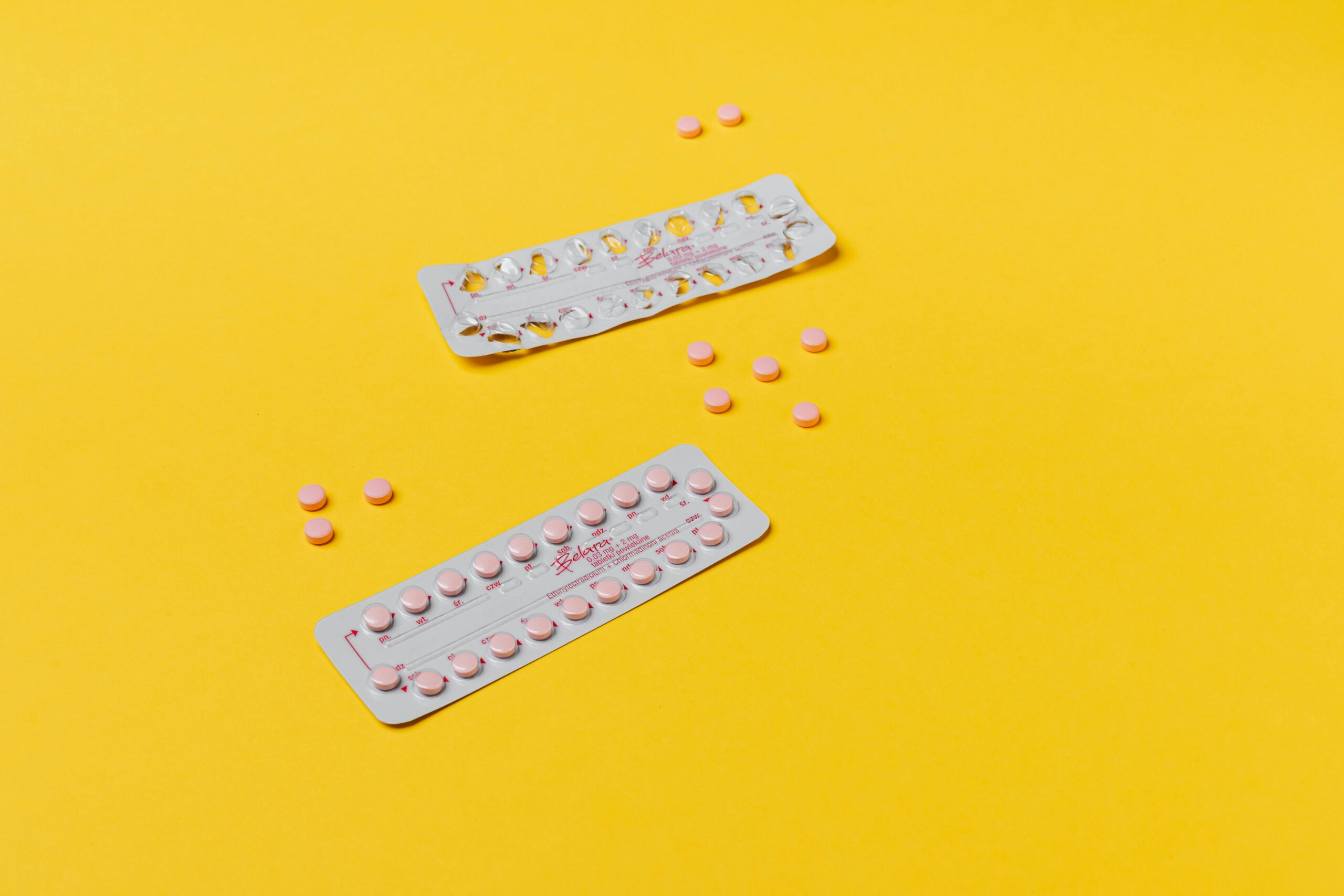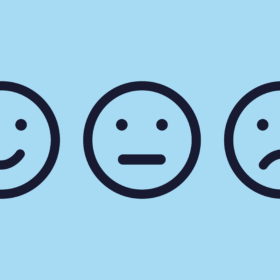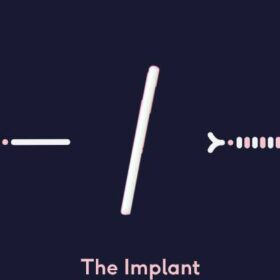
The benefits of hormonal contraception
Disclaimer: This article has been supported with an unrestricted educational grant from Exeltis UK. It has been developed independently of Exeltis, and just like all of our other content, is a completely honest breakdown. See our Content Policy for more details.
In this article
What's the lowdown?
Hormonaphobia is a term to describe a growing trend of people turning away from hormonal contraception due to concerns about the risk and side effects.
Hormonal contraception has more potential benefits then just preventing pregnancy including the treatment of acne, period pain, heavy menstrual bleeding, premenstrual syndrome (PMS) and premenstrual dysphoric disorder (PMDD), endometriosis and polycystic ovary syndrome (PCOS).
Hormonal contraception also has far reaching benefits for gender equality, reproductive freedom and the value women bring to the economy.
The benefits of hormonal contraception should always be weighed up against the side effects and risks for each individual when choosing a contraceptive method.
What are hormonal contraceptives?
Hormonal contraceptives contain either a combination of oestrogen and progestogen, or only progestogen. They include:
- The combined pill
- The progestogen-only pill
- The patch
- The vaginal ring
- The injection
- The implant
- The hormonal coil (hormonal IUD)
What is hormonaphobia?
“Hormonaphobia” means a fear of using hormonal treatments or medications, including contraceptives. It’s a term that is now even being used in scientific research1.
Over the last few years, there is a suggestion that more women are turning away from hormonal contraceptives. Of women who attended the British Pregnancy Advisory Service for an abortion, the number who were using hormonal contraception decreased from 18.8% in 2018 to 11.3% in 2023. More concerning however, was the number of women who weren’t using any contraception at all which increased by 14% over the 5 years2.
The reason for hormonaphobia is multifactorial, but could include concerns about physical side effects and the worry about the possible effects of hormones on fertility, mental health and sexuality3.
However, hormonaphobia could also be due to misinformation, “click bait” or polarised opinions seen online and on social media. An analysis of 100 influencer TikTok videos that discuss birth control found that they were more likely to be negative about hormonal contraception and exaggerate the small risks associated with them4. YouTube videos created by social media influencers were also biased towards stopping hormonal contraception5.
Concerns about side effects of hormonal contraceptives may not be fully addressed by healthcare professionals in appointments, and there isn’t a good amount of scientific research into side effects, which can leave a big hole of knowledge for myths and misinformation to fill.
We are here to present all the facts to allow you to make an informed decision on your contraceptive choice. There are risks to consider when taking hormonal contraceptives including small increased risks of:
- cardiovascular disease
- some types of cancer including breast cancer
- and developing blood clots
Hormonal contraceptives are associated with known possible side effects such as skin changes and acne, changes to sex drive, mood changes, changes to bleeding and weight changes. However the possible benefits of hormonal contraceptives and the evidence behind them are often overlooked. Here we take a look at some of the benefits you might not know about…
The benefits of hormonal contraception
In the US alone, around 1.5 million women use hormonal contraception for reasons other than preventing pregnancy6 – so there’s got to be something in it right? Let’s have a look at the benefits of hormonal contraception.
Skin
Acne is understandably a concern for young women, given that 85% of young people between the ages of 12 to 24 suffer from acne7. The use of hormonal contraceptives, especially the combined pill, can reduce inflammatory skin breakouts by 62% after 6 months of use…..which is slightly better than antibiotics at 58%7.
Period control
The average woman will have 450 periods in their lifetime8. Periods can be irregular, painful and heavy for some people, and sometimes without any cause found.
Hormonal contraceptives have been shown to reduce pain, improve heavy bleeding and treat abnormal or long menstrual bleeding9.
Reproductive health conditions
Reproductive health conditions affect many women worldwide. Endometriosis affects an estimated 190 million women worldwide10, and PCOS affects 1 in 10 women11. Other conditions including adenomyosis and fibroids can also have a huge impact on someone’s life.
Hormonal contraceptives, including both combined and progestogen-only contraceptives, can be used as a treatment for reproductive health conditions.
Endometriosis
All types of hormonal contraceptive can improve pain during periods, during sex and overall quality of life12.
PCOS
Combined oral contraceptive pills can improve irregular periods and symptoms for people with PCOS. Pills containing anti-androgenic progestogens like drospirenone, may be better at controlling the symptoms of PCOS13.
Adenoymosis
Hormonal contraceptives, especially those with high doses of progestogen or progestogen-only contraceptives have been proven to help with the symptoms of adenomyosis14.
Fibroids
Fibroids are benign growths in the womb that affect between half to three quarters of all women15. Taking an oral contraceptive pill can reduce the risk of developing fibroids16,17. Hormonal contraceptives can improve the symptoms that come along with fibroids such as heavy bleeding18.
Premenstrual syndrome (PMS) and premenstrual dysphoric disorder (PMDD)
PMS refers to physical and emotional symptoms that many women experience in the days before their period. PMDD is a severe mood disorder that affects women in the last two weeks of their cycle. The condition can be treated using hormonal contraceptives to stop the hormonal fluctuations throughout the menstrual cycle. Research suggests the best contraceptive pill for PMDD is one that contains the progestogen drospirenone19, 20. The hormonal coil can also be used as part of PMDD treatment alongside high doses of natural oestrogen.
Menstrual migraine
Menstrual migraine attacks happen in the last week of the menstrual cycle, usually two days before your period starts. They are caused by hormonal fluctuations. Menstrual migraines can be treated using hormonal contraception to stop ovulation (the release of an egg each month) and therefore stop changes in hormone levels21. The hormonal contraceptives which reliably stop ovulation to help menstrual migraine include:
- the combined pill, patch or ring if taken back to back (continuously)
- the implant
- the injection
- desogestrel or drospirenone containing progestogen-only pills
Reducing cancer risk
People might worry about the small increased risk of breast cancer with hormonal contraception. BUT, hormonal contraceptives can also reduce the risk of some cancers.
1 in 4 womb cancers and almost 1 in 5 ovarian cancers are prevented in the UK by using the pill (either the combined or progestogen-only pill)22. The implant and hormonal coil can also be used to reduce the risk of womb cancer for women with PCOS – who can be at higher risk if they have less than four periods a year.
Finally, there is a 14-19% lower risk of bowel cancer in women who have ever used the pill23.
The wider benefits of hormonal contraception
You can see from above that there are benefits of hormonal contraception for individual women. However, we must also think about the benefits to society as a whole. When the pill was first discovered in the 1960’s – this opened up a huge new opportunity for women.
Firstly, it allowed us reproductive freedom – women could start to plan and prepare for when they wanted a child and women could enjoy sex without fear of pregnancy.
Hormonal contraceptives protect women who have health conditions that can make pregnancy risky for them or an unborn child. This gives families time to plan and optimise their health before trying to conceive.
Family planning has enabled more women to work and become economically productive. Which in turn has helped reduce gender inequality and the gender pay gap.
In developing countries and for those women unfortunately living in poverty, the ability to control their fertility has a huge impact on their quality of life – allowing them to work and provide for their families. And in the future, this can help communities escape poverty.
So given this information, we urge each reader to not be taken in by hormonaphobia. We want each member of our Lowdown community to make an individual choice. To make this choice you need to have all the information about the small risks, side effects and benefits of each type of hormonal contraceptive. And not just a negatively balanced view!
Our medical review process
This article has been medically reviewed for factual and up to date information by a Lowdown doctor.




